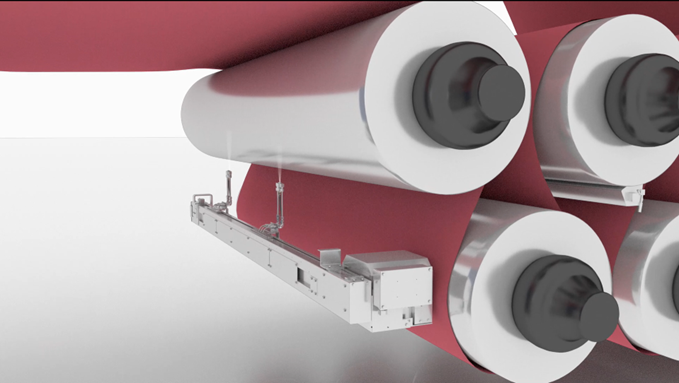Maintech aims to ensure its Dryer Section Passivation (DSP) Technology becomes the global standard in recycled paper and paperboard manufacturing.

“We have sold over 800 units across the world.
We plan to increase that number in Asia, Europe and North America.”
Hiroshi Sekiya, President, Maintech Co., Ltd. https://maintech.co.jp
While the recycling business is generally perceived as an industry that was established and has grown over the past few decades, Japan has in fact been a leader in papermaking and recycling for some 300 years.
Japanese paper production has been consistently among the top five in the world, while recycled paper accounts for two-thirds of the raw materials used to produce new paper and paperboard products in Japan. Against this backdrop, Maintech, which supplies solutions to improve the productivity of paper mills and the quality of recycled paper, has shone. The company now aims to expand its DSP (Dryer Section Passivation) Technology globally.
“Japan is a global leader when it comes to paper recycling. Moreover, I believe Japan will continue to be a leader. The paper recycling business was established here in Japan in the Edo era,” says Maintech president Hiroshi Sekiya. “Therefore, the paper recycling culture has been historically rooted in the Japanese lifestyle for more than 300 years. I believe that the recycled paper utilization rate will continue to be high.” Maintech’s DSP technology can be mainly used and particularly beneficial in producing paper products using recovered paper.
The paper machine consists of three main sections: the forming section, the press section, and finally the dryer section, where the wet paper sheet is dried with steam-heated cylinders. DSP is used in the dryer section, helping to prevent deposition from building up on the paper machine (dryer cylinders, dryer fabrics) surface due to unwanted materials and substances, such as packing tape, labels, ink, etc., present in the recovered paper.
“Paper can often have several defects due to this deposition. When it comes to the use of paperboard at cardboard-making factories, any paper with a defect size of over 10mm is never accepted because it would ruin the appearance of the cardboard box,” explains Mr. Sekiya. “Therefore, the paper machine operators must eliminate the production of defective paper in the mill before shipping. This defective paper often goes back to the pulping process as raw materials, which reduces productivity and requires more energy to manufacture the same amount of paper. This is the main reason why most of the recycling paperboard mills have introduced our DSP in Japan.”
“In Asia and Europe, they have been introducing cutting-edge paper machines which can run at high speeds, running almost twice as fast as Japanese equipment,” adds the Maintech president. “Therefore, even small deposits on the paper machine can cause sheet break problems down the line and reduce productivity. This is one of the reasons why our DSP sells so well outside of Japan.” Utilization of DSP, therefore, can ensure reduced energy consumption, improved paper quality, increased productivity and savings on labor costs. It’s no wonder then that DSP has already proved popular among paper mills worldwide.
Having secured a 100% share of the domestic market and market shares of between 60 and 70% in China and regions of Southeast Asia, Maintech’s goal is to expand its DSP solutions in Europe and North America. While cracking these markets can be difficult for a relatively unknown Japanese SME, Maintech has started to make headway thanks to a growing reputation on both sides of the Atlantic and has now sold more than 50 units of DSP in the U.S. and Europe. “Though there are some U.S. and European competitors, comparative tests to date have proven that our authentic DSP technology with the highest track record is the most cost-effective solution,” says the company president. “Right now, we have sold over 800 units across the world. We plan to increase that number in Asia, Europe and North America and expect to reach the 1,000 mark in a few years.”
To ensure the same quality of service as in Japan, Maintech also provides equipment maintenance services and technical services in China, Europe, and the U.S., having an office in Dusseldorf to serve European clients, a subsidiary company and five offices in China, while its new office in Atlanta is set to open this year to cater to a growing base of customers in North America.
Moreover, Maintech has also developed Smart Papyrus. This system has been developed using sensing IoT to digitize deposit levels on the paper machine and AI technologies to manufacture recycled paper more efficiently and effectively. The Smart Papyrus Ver.1, offering a surveillance camera to watch dryer section deposition and a DSP chemical dosage management system, was followed by the recently launched Smart Papyrus 1.0, which boasts a defect categorization system. “Our Smart Papyrus Ver.1 focuses on the dryer section, while Smart Papyrus 1.0 categorizes the defects,” Mr. Sekiya adds. “When we analyzed the defects, we realized that the dryer section was in perfect condition thanks to our DSP. Most of the defects came from other parts. That is why we have expanded our field to the press section and the forming section as well as the wet-end section.” Currently under development, Smart Papyrus 2.0 will come with a more sophisticated system to anticipate defect generation not only in the forming press and dryer sections but also in stock preparation (paper material process), using Big Data and IoT.
Looking towards the longer-term future, Mr. Sekiya reveals, “Right now, our DSP is just an Asian standard. My first goal is to expand our DSP business worldwide and to make it the global standard for recycled paper manufacturing. My second goal is to develop our Smart Papyrus technology with our customers to create a platform for the future of eco paper-making.”
0 COMMENTS